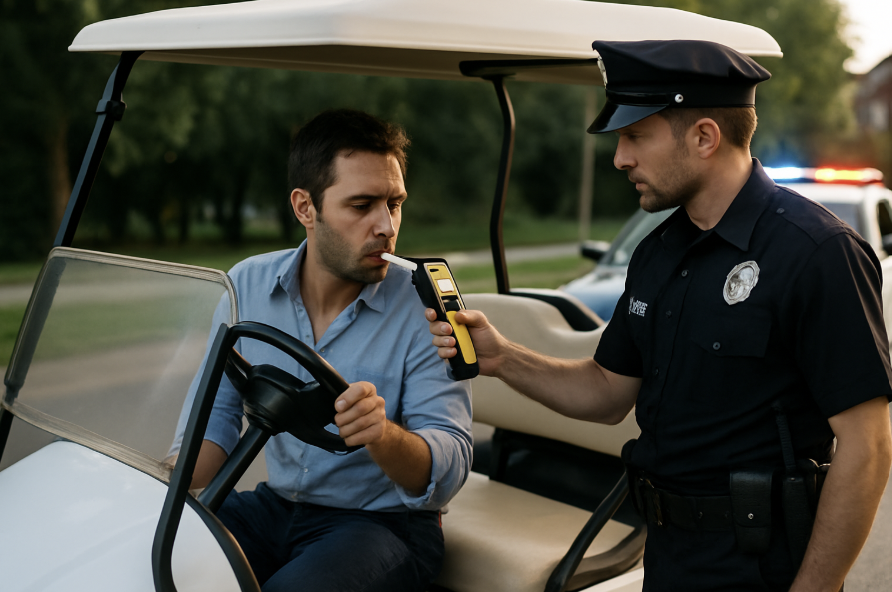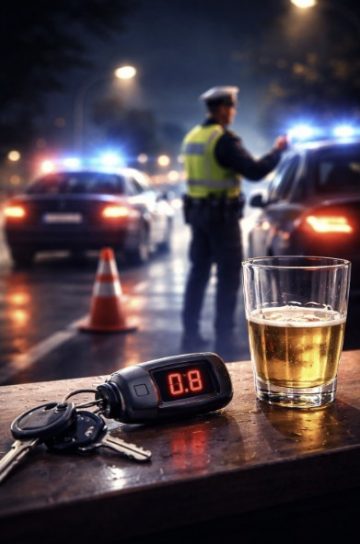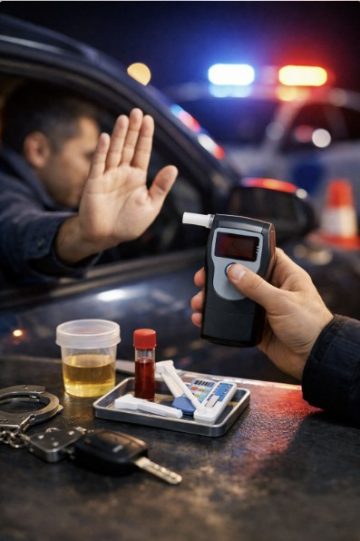Driving Under the Influence: Even a Golf Cart is a Vehicle under Criminal Traffic Law
A recent incident reminds us that driving under the influence is not limited to traditional vehicles.
During an event that drew media attention, a Belgian parliamentarian was involved in a case of driving under the influence — not behind the wheel of a car, but of a golf cart.
The charges include driving while intoxicated and refusing to submit to a breathalyzer test. Due to her parliamentary status, the lifting of her immunity has been requested to allow the investigation to proceed. The individual concerned has publicly expressed regret and indicated her willingness to fully cooperate with the judicial authorities.
This incident highlights an essential rule in traffic law: any vehicle, regardless of its type, requires the driver to comply with sobriety regulations.
What is a vehicle under traffic law?
According to Article 2.14 of the Royal Decree of 1 December 1975, which establishes the general traffic and road use regulations, the term “vehicle” is defined as:
“Any means of land transport, as well as any mobile agricultural or industrial equipment.“
The definition is intentionally broad and includes:
-
Golf carts,
-
Light utility vehicles,
-
Agricultural machinery,
-
Certain types of construction equipment.
Thus, driving a golf cart under the influence on a public road constitutes an offence, just like driving a conventional motor vehicle while intoxicated.
Legal consequences
In Belgium, the sanctions for driving under the influence are significant and may include:
-
A criminal fine,
-
Disqualification from driving for a determined period,
-
The requirement to undergo a medical or psychotechnical examination before license reinstatement,
-
In serious cases or repeated offences, imprisonment.
Refusing to submit to a breathalyzer test is a separate offence that is also severely punished.
Special rules for parliamentarians
When a person holds a parliamentary mandate, they benefit from criminal immunity.
This means that no criminal proceedings can be initiated against them without the prior lifting of their immunity by the competent parliamentary assembly.
This mechanism protects the independence of elected officials while allowing prosecution if necessary.
In this case, the parliamentarian herself requested the lifting of her immunity, signaling her willingness to cooperate.
A useful reminder for everyone
This incident shows that rules regarding driving under the influence apply to any land-based means of transport, regardless of size or usual recreational use.
Whether driving a car, motorcycle, tractor, or golf cart:
-
Compliance with sobriety laws is mandatory,
-
The driver’s responsibility is fully engaged.
Vigilance remains crucial in all circumstances.




